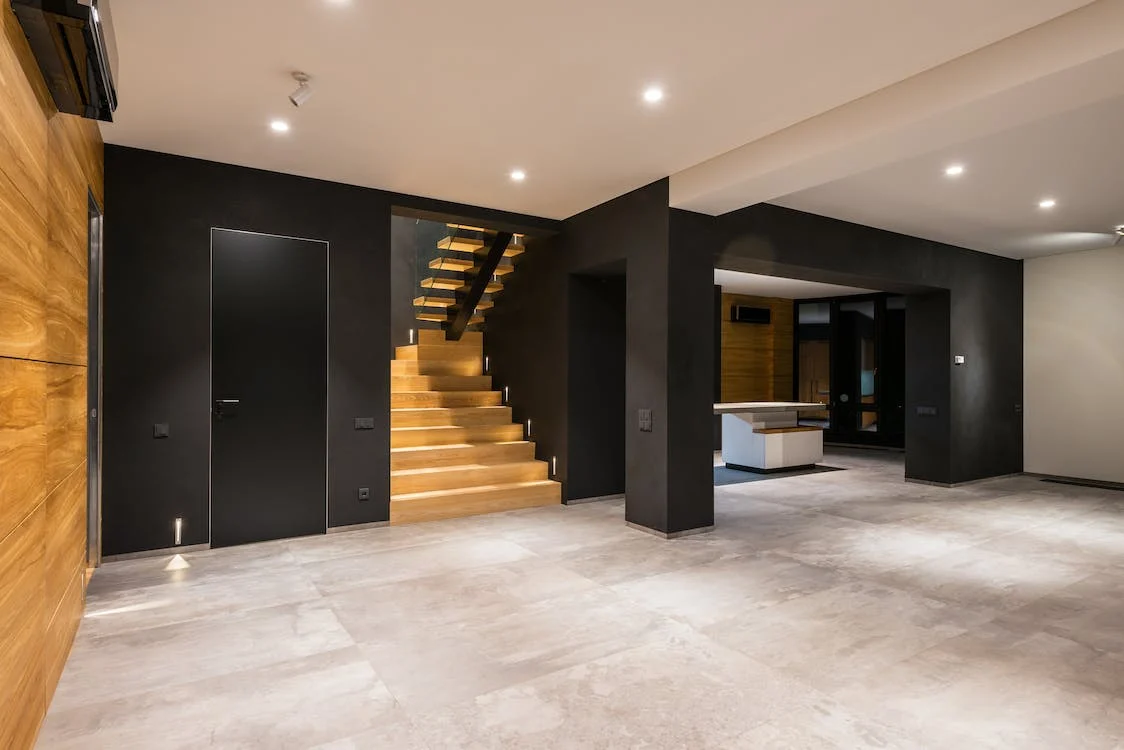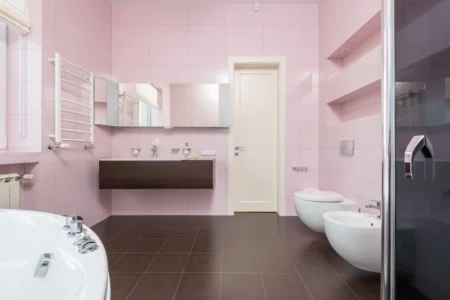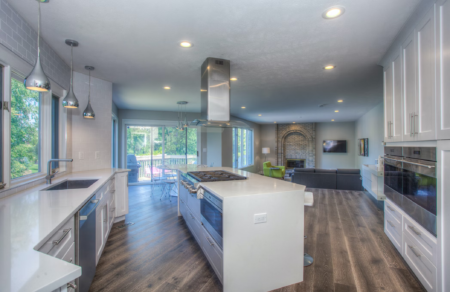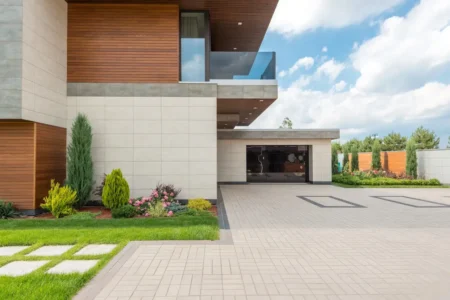Choosing black tiles for your home or commercial space is a decision that can significantly impact the overall aesthetics and functionality of the area. Black tiles are known for their timeless and versatile appeal, but they also come with their own set of advantages and disadvantages. In this comprehensive guide, we will explore the pros and cons of choosing black tiles, helping you make an informed decision for your design project.
Pros of Choosing Black Tiles
- Timeless Elegance: Black tiles exude a timeless and elegant look that never goes out of style. They can add a touch of sophistication and class to any space, making them a popular choice for interior design.
- Versatility: Black tiles are incredibly versatile and can be used in various design styles, from modern and minimalist to traditional and industrial. They complement a wide range of color palettes and materials, making them a versatile choice for both residential and commercial spaces.
- Contrast and Drama: Black tiles create a striking contrast with other colors, making them an excellent choice for creating drama and focal points in a room. They can be used to highlight architectural features, furniture, or artwork.
- Easy to Clean: Dark-colored tiles, including black ones, tend to hide stains and dirt better than lighter shades, making maintenance and cleaning more manageable. This is especially beneficial for high-traffic areas.
- Spacious Feel: Contrary to the common misconception that dark colors make a space feel smaller, black tiles can actually make a room appear more spacious. They can create an illusion of depth and expansiveness when used strategically.
- Complementary with Metallics: Black tiles pair beautifully with metallic finishes such as chrome, brass, or copper. This combination adds a luxurious and modern touch to your space.
- Stain Resistance: Many black tiles are made from materials that are inherently stain-resistant, making them an excellent choice for areas prone to spills and messes, such as kitchens and bathrooms.
- Heat Absorption: Black tiles can absorb and retain heat, which can be advantageous in colder climates. They can help create a cozy and warm atmosphere, especially when used in flooring.
- Durability: Black tiles are often made from robust and long-lasting materials like porcelain or natural stone, ensuring that your investment will stand the test of time.
- Visual Depth and Texture: Black tiles with textured surfaces can add depth and character to a room. The play of light and shadow on textured black tiles can create a unique visual appeal.
Cons of Choosing Black Tiles
- Limited Light Reflection: Black tiles absorb light rather than reflect it, which can make a space appear darker. In areas with insufficient natural light, this can make the room feel gloomy and smaller.
- Dust and Smudge Visibility: While black tiles may hide stains and dirt well, they can be more susceptible to dust and smudges, which may be more visible on their dark surface.
- Maintenance Challenges: Despite their ability to hide stains, black tiles can be more challenging to maintain in terms of keeping them looking spotless. Frequent cleaning may be necessary to keep them looking their best.
- Heat Absorption: While heat absorption can be an advantage in colder climates, it can become a drawback in hot and sunny regions. Black tiles can make a room feel warmer during summer, potentially increasing the need for air conditioning.
- Limited Color Palette: Using black tiles can limit your color palette for the rest of the room’s decor. Complementary colors and design elements need to be carefully chosen to avoid a monotonous or overly dark environment.
- Potential for Fading: Black tiles, especially those exposed to direct sunlight, may fade over time. This is more likely with natural stone tiles. Regular maintenance and sealing can help mitigate this issue.
- Psychological Impact: The color black can evoke various psychological responses, such as feelings of mystery, elegance, or even sadness. It may not be the best choice for every room or individual, as personal preferences can vary.
- Trend-Dependent: While black tiles are timeless, their popularity can be influenced by design trends. Using them solely based on current trends may result in a dated look in the long run.
- Potential for Scratches: Black tiles may show scratches more prominently, especially if the material is prone to this type of damage. Consider the tile material and its suitability for the intended use.
- Cost: High-quality black tiles, particularly those made from natural stone, can be more expensive than their lighter-colored counterparts. This cost should be factored into your budget.
In summary, choosing black tiles for your design project comes with its own set of pros and cons. They offer timeless elegance, versatility, and the ability to create striking contrasts and drama in a space. Black tiles are easy to clean, can make a room feel more spacious, and are often resistant to stains. They also pair well with metallic finishes, offer heat absorption benefits, and are durable with the right choice of materials. However, they have limitations such as limited light reflection, dust and smudge visibility, maintenance challenges, and potential heat absorption issues. Black tiles may also limit your color palette, and their long-term appearance can be affected by fading and scratches.
When deciding whether to use black tiles in your project, consider the specific characteristics of your space, your personal preferences, and the intended use of the tiles. By weighing the pros and cons, you can make an informed choice that aligns with your design goals and practical requirements.
If you’re considering incorporating natural stone into your design, explore Avant Stone’s 2025 Natural Stone Collection for a curated selection of premium options.










